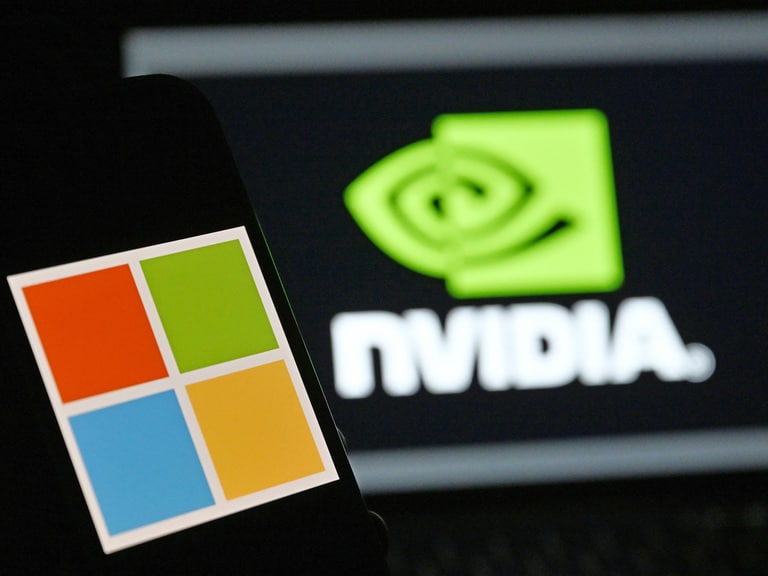AstraZeneca [AZN], Pfizer [PFE] and Moderna [MRNA] have all seen their share prices drop since the start of December. The dip comes despite the fact that their names are synonymous with the coronavirus vaccine rollout, which is providing hope the pandemic might come to an end, as well as driving a renewed sense of confidence in an economic recovery.
That confidence is susceptible to any delay or problem with the rollout, however, as seen last week when a rally in equity markets came to a halt as fears resurfaced.
In Europe, Pfizer and BioNTech [BNTX] clashed with the EU over a reduction in vaccine deliveries. This came after a ruling from the European Medicines Agency that six doses of the vaccine could be extracted from each Pfizer/BioNTech vial, rather than five, due to some vaccine being left over from the original doses. One member state has threatened to sue the pharmaceutical firms, while the decision to reduce deliveries has caused European countries to slow vaccination plans, as reported by the Financial Times.
In the US, the slow rollout of the vaccination is a continuing concern. According to Anjalee Khemlai, a senior reporter at Yahoo Finance, there seems to be a disconnect between “what vaccine makers like Pfizer have available and what has been bought, distributed and allocated.”
Clearly, the success of the immunisation programme has repercussions for other sectors — notably travel, hospitality, and even fintech, with MasterCard [MA] and Visa [V] suffering from the lack of cross-border transactions.
Yet for the pharmaceutical sector itself, any upside off the back of vaccination rollouts could be limited.
So, why is Astrazenaca’s share price down, along with other coronavirus vaccine manufacturers’ stocks? The obvious answer is that the development of the vaccine has already been priced into their respective stocks. Another is that, with the treatments dominating the press, these stocks have seen short-term day trading.
Yet, what the recent share price movements disguise is that pharmaceutical companies have historically been profitable, dividend-paying defensive stocks that could make a welcome addition to any portfolio.
Why investors should look beyond the vaccine rollout
AstraZeneca’s share price
AstraZeneca received backing from Deutsche Bank analyst Emmanuel Papadakis, who initiated coverage of AstraZeneca with a buy rating, as reported by investment website The Fly. According to Papadakis, European pharmaceutical companies are "witnessing unprecedented therapeutic advances in some of the most historically intractable fields of drug discovery and unmet medical need". This backs up the argument that investors are looking beyond the vaccine when considering pharmaceutical stocks, with Papadakis pinning a 10,000p price target on AstraZeneca’s share price — a 26.6% upside on the current price (through 25 January’s close).
Pfizer’s share price
In December, RBC analyst Randall Stanicky lowered his price target on Pfizer from $43 to $42, arguing that the stock already reflected success in developing a vaccine and would face increased competition in 2021. Stanicky also lowered his rating from outperform to sector perform.
Yet Pfizer performed well last year, even if the pandemic restricted its margins. In the third quarter, Pfizer’s biopharma business grew 4% operationally thanks to the strength of its key brands, with global revenue from Vyndaqel/Vyndamax at $351m, up 125%. Still, total revenue of $12.13bn was down 4% compared to the previous year.
Moderna’s share price
Moderna received a spate of analyst downgrades at the end of 2020. Yet, while the drug maker is synonymous with its COVID vaccine in the press, its financial future could lay elsewhere. Morgan Stanley, while lowering its rating on Moderna from overweight to equal weight, noted “vaccines, rare diseases and oncology to be major opportunities for mRNA,” over a longer-term timeframe. Moderna CEO Stephane Bancel has also said that the company is looking at developing a treatment for the seasonal flu.
"Vaccines, rare diseases and oncology [are] major opportunities for mRNA" - Morgan Stanley analysts
GSK’s share price
One pharmaceutical company that did not benefit from a strong 2020 is GlaxoSmithKline [GSK]. More people staying indoors during the pandemic led to a reduction in demand for its medical treatments. Over the past 12 months GSK’s share price has dropped 21.18%, yet for bargain hunters this could represent an opportunity to buy a high quality, dividend-paying stock.
In the second quarter of last year, overall vaccine sales slumped 29% to £1.13bn, although things picked up in the third quarter with vaccine sales down only 9% year-on-year at £2bn. In the third quarter, GSK reported total sales of £8.6bn — an 8% drop from the same period last year, with sales of blockbuster shingles treatment Shingrix down 30%.
GSK noted that prescriptions had returned to 2019 levels by the end of the quarter, and investors will be hoping for signs of continued improvement when fourth quarter earnings are released.
While COVID-19 vaccines may already be priced into pharmaceutical stocks, then, it could be worth considering wider pipelines before writing the sector off completely.
Disclaimer Past performance is not a reliable indicator of future results.
CMC Markets is an execution-only service provider. The material (whether or not it states any opinions) is for general information purposes only, and does not take into account your personal circumstances or objectives. Nothing in this material is (or should be considered to be) financial, investment or other advice on which reliance should be placed. No opinion given in the material constitutes a recommendation by CMC Markets or the author that any particular investment, security, transaction or investment strategy is suitable for any specific person.
The material has not been prepared in accordance with legal requirements designed to promote the independence of investment research. Although we are not specifically prevented from dealing before providing this material, we do not seek to take advantage of the material prior to its dissemination.
CMC Markets does not endorse or offer opinion on the trading strategies used by the author. Their trading strategies do not guarantee any return and CMC Markets shall not be held responsible for any loss that you may incur, either directly or indirectly, arising from any investment based on any information contained herein.
*Tax treatment depends on individual circumstances and can change or may differ in a jurisdiction other than the UK.
Continue reading for FREE
- Includes free newsletter updates, unsubscribe anytime. Privacy policy





